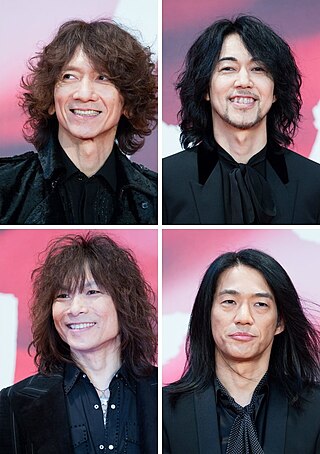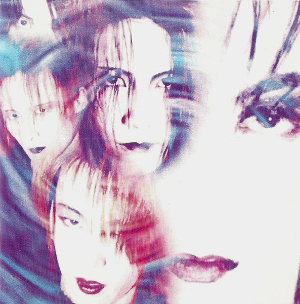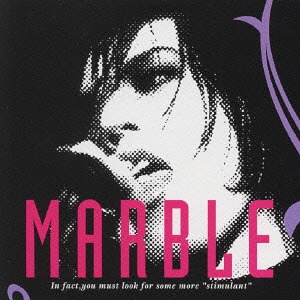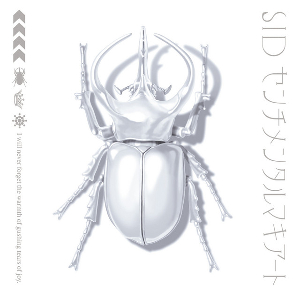Kuroyume was a Japanese rock band formed in Nagoya in May 1991. They quickly achieved success with their 1994 major label debut album Mayoeru Yuritachi, which reached number three on the Oricon Albums Chart. Following the departure of guitarist Shin in 1995, vocalist Kiyoharu and bassist Hitoki remained the only official members. Each of their five subsequent albums reached the top seven on the chart, with Feminism (1995) and Fake Star (1996) both topping it. Their 1996 single "Pistol" earned them an MTV Video Music Award. Kuroyume had a definite influence on the visual kei scene, being credited as inspiration to many bands of the late 1990s and as one of the creators of Nagoya kei.

Moon is the third full-length studio album released by Japanese solo artist Gackt on June 19, 2002. Instead of a booklet, the concept album comes with a printed note by the artist, asking readers to "sense" the record's story, rather than analyzing the lyrics. The booklet was eventually included in the packaging of Moon's 2003 follow-up Crescent. Both albums are linked, as well as his more recent albums Diabolos and Last Moon from the "Moon Saga".

The Yellow Monkey, sometimes abbreviated as Yemon, is a Japanese rock band originally active from 1988 to 2001, before officially disbanding in 2004. They announced their reformation in 2016.

"Chase the Chance" is the fourth single by Japanese singer Namie Amuro from her second studio album, Sweet 19 Blues (1996). It was released as the album's second single on December 4, 1995, through Avex Trax.

Merveilles is the third studio album by Japanese rock band Malice Mizer, released on March 18, 1998 by Nippon Columbia. It is the band's only album on a major record label and their commercially and critically most successful album, as well as their last album with their second vocalist Gackt.
Fanatic Crisis was a Japanese rock band active from 1992–2005.

The discography of Japanese R&B singer Misia consists of nine studio albums, three compilation albums, one extended play (EP), one live album, six remix albums, twenty-six singles, twelve promotional singles, eighteen video albums and thirty-seven music videos. In 1997, Misia signed a recording contract with BMG Japan and joined the then up-and-coming talent agency, Rhythmedia. Under the sub-label Arista Japan, Misia released her first single, "Tsutsumikomu Yō ni..." in February 1998, followed by "Hi no Ataru Basho" in May. In June, her debut album, Mother Father Brother Sister, opened at number three on the Oricon chart. The album peaked at number one three weeks later and stayed in the top five for eleven consecutive weeks. Mother Father Brother Sister was certified double million and won a Japan Record Award for Best Album, as well as a Japan Gold Disc Award for Pop Album of the Year. In 2000, Misia's second studio album, Love Is the Message, debuted at number one and was certified double million. It won a Japan Record Award for Best Album and a Japan Gold Disc Award for Pop Album of the Year. The album spawned three top ten hits: "Believe," "Wasurenai Hibi" and "Sweetness." Misia's first remix album, Misia Remix 2000 Little Tokyo, was released three months later and shot to number one. It sold over 800,000 copies and is the second best-selling remix album of all time in Japan.

Eden is the third studio album by Japanese rock band Luna Sea, released on April 21, 1993. It reached number five on the Oricon Albums Chart, and charted for 19 weeks. In 2000, it was certified Platinum by the RIAJ for sales over 400,000.

B'z The Best "Pleasure" is the third compilation album by the Japanese rock duo B'z and released in 1998. It includes many of the group's hit singles from 1989 to 1998. With the exception of "Be There" and 'Bad Communication E.Style", all the songs are #1 hits on the Oricon charts.

"Change Ur World" is the thirteenth single by Japanese boy band KAT-TUN. It was released on November 17, 2010 by their record label J-One Records. The title track was used as the 2nd theme song for the Nippon Television TV Show, Going! Sports & News, which is co-hosted by member Kazuya Kamenashi.
Tsutomu Ishizuki is a Japanese singer, musician and designer, best known as the lead singer and songwriter of rock band Fanatic Crisis from 1992 to 2005. Two years later, he started working as a designer. In 2012, he returned to music by starting a solo career and in 2019, Ishizuki and the two guitarists from Fanatic Crisis formed the sub-unit Fantastic Circus.

"Sakura" is the 45th single by Japanese boy band Arashi. It was released on February 25, 2015 under their record label J Storm. "Sakura" was used as the theme song for the television drama Ouroborous, starring actors Toma Ikuta and Shun Oguri. The single was released in two editions: a first press/limited edition and a regular edition. The first press/limited edition contains the B-side "Rise and Shine" and the music video and making-of for "Sakura" while the regular edition contains two B-sides. The single sold 465,381 copies in its first week and topped the weekly Oricon Singles Chart. With over 520,000 copies sold, the single was certified Double Platinum by the Recording Industry Association of Japan (RIAJ). The single placed 11th on Oricon's 2015 yearly singles ranking.
Back Number is a Japanese rock power trio formed in 2004. The group consists of Iyori Shimizu, Kazuya Kojima, and Hisashi Kurihara (drums). The group signed to independent record label Idolsmith Recordings in 2009 and released their debut EP Nogashita Sakana (2009) and studio album Ato no Matsuri (2010). They signed to Universal Sigma in 2011.

Taiyou no Toriko is the debut EP by Japanese rock band Fanatic Crisis. This album has two editions. The first edition features six tracks and was released by the independent label Noir on December 1, 1994. The second edition features three additional tracks and was released on April 28, 1995.

The.Lost.Innocent is the third studio album by Japanese rock band Fanatic Crisis and their second major label release. It was released on the label For Life on February 24, 1999. The first edition featured a white digipack with a velcrow strap, while the second edition, with remastered sound, was released in a jewel case with a black cover.

Karma is the first demo tape by Japanese rock band Fanatic Crisis. It was released independently in April 1994. Kuroi Taiyou was later redone for their first indie album, Taiyou no Toriko, and the song Mobius to Aishou was later remade for the Cry-Max Pleasure compilation.

Marble is the second EP by Japanese rock band Fanatic Crisis. It was released by the independent label Noir on November 25, 1996. The first edition was housed in a plastic sleeve containing a box showing fake prescription pills which say, "Now, you must look for some more stimulants." It was re-released on May 19, 1999, alongside other Fanatic Crisis's indies albums, and that edition reached number 47 on Oricon Albums Chart.

EAS is the fourth studio album by Japanese rock band Fanatic Crisis and their first release with the label Stoic Stone on September 13, 2000. The original mixes of Purple & Psychic Honey, Sonzai Riyuu to Sonzai Ishiki, and Be You were featured on the Side Adam and Side Eve EPs.

The Feat. Best is the third greatest hits album by Japanese-American singer-songwriter Ai. It was released on November 2, 2016, by EMI Records. The album features 35 artists, including Japanese singers Namie Amuro, Thelma Aoyama, Miliyah Kato, Hikaru Utada, and Exile Atsushi. American artists such as Chaka Khan, Snoop Dogg, The Jacksons, Jeremih, and Boyz II Men also appear on the album.

Sentimental Macchiato (センチメンタルマキアート) is the fourth studio album by Japanese rock band SID, released on February 20, 2008, by Danger Crue Records.
















